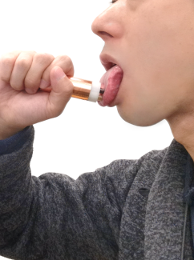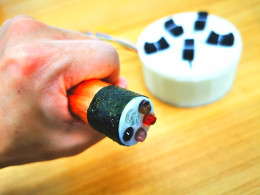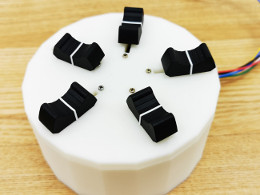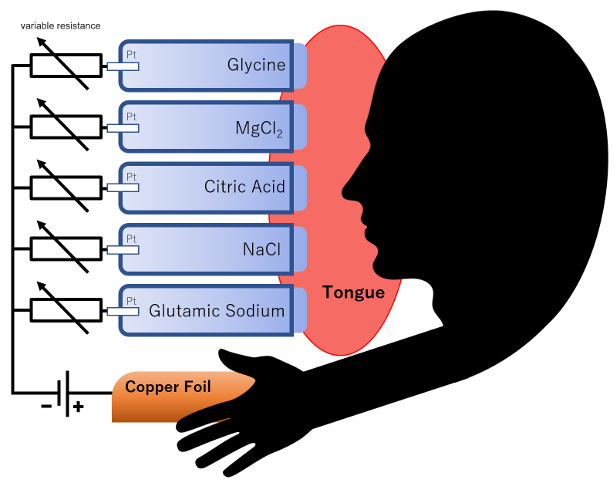Developing a technology that can share tastes without the risk of infection: Prof. Homei Miyashita has developed a taste display that expresses an arbitrary taste
May 27, 2020




The Miyashita Laboratory has been working on electric taste, a taste sensation generated by electric stimulation to the tongue. The laboratory’s inventions using this technology include a chewing gum that creates a taste with power generated by the chewing movement [1] and a method that enhances and prolongs the aftertaste of a drink.[2] Taking advantage of this technology, Dr. Miyashita’s lab is also conducting a project aimed at enhancing the taste of healthy food without chemical augmentation.[3] This taste display, however, does not involve tongue electrostimulation. The aim is not the alteration of the taste of a meal but the remote transmission and reproduction of tastes.
The paper on Norimaki Synthesizer, a prototype of this experimental taste display is now available at the following URL. Prof. Miyashita is working on ways to make taste more reproducible and representable than shown in this paper.
Homei Miyashita. 2020. Norimaki Synthesizer: Taste Display Using Ion Electrophoresis in Five Gels. In Extended Abstracts of the 2020 CHI Conference on Human Factors in Computing Systems Extended Abstracts (CHI'20). Association for Computing Machinery, New York, NY, USA, 1–6. https://dl.acm.org/doi/abs/10.1145/3334480.3382984
References:
[1] Meiji University press release on March 26, 2018 [in Japanese]: Naoshi Ooba, a first-year student in the master’s course in the Frontier Media Science Program, Assistant Professor Kazuma Aoyama, Dr. Hiromi Nakamura, and Professor Homei Miyashita were given an interactive presentation award in two categories (general vote and PC recommendation) at the Interaction 2018, the 22nd symposium of the Information Processing Society of Japan. https://www.meiji.ac.jp/ams/info/6t5h7p00000qrzof.html
[2] Meiji University press release on September 27, 2018 [in Japanese]: The Laboratory of Homei Miyashita of the School of Interdisciplinary Mathematical Sciences has developed a method to enhance and prolong aftertaste by applying electrostimulation. —The method for enhancing the intensity and extending the duration of the aftertaste in the throat— https://www.meiji.ac.jp/koho/press/2018/6t5h7p00000sv1jw.html
[3] Meiji University press release on April 23, 2019, 2018 [in Japanese]: Dr. Homei Miyashita, Professor at the Department of Frontier Media Science and his colleagues are chosen “Pursuit of Ideals,” a research grant from the Canon Foundation. https://www.meiji.ac.jp/ims/news/2019/6t5h7p000015ym07.html
See a demonstration moviehttps://youtu.be/7HIm4LoAZxU


